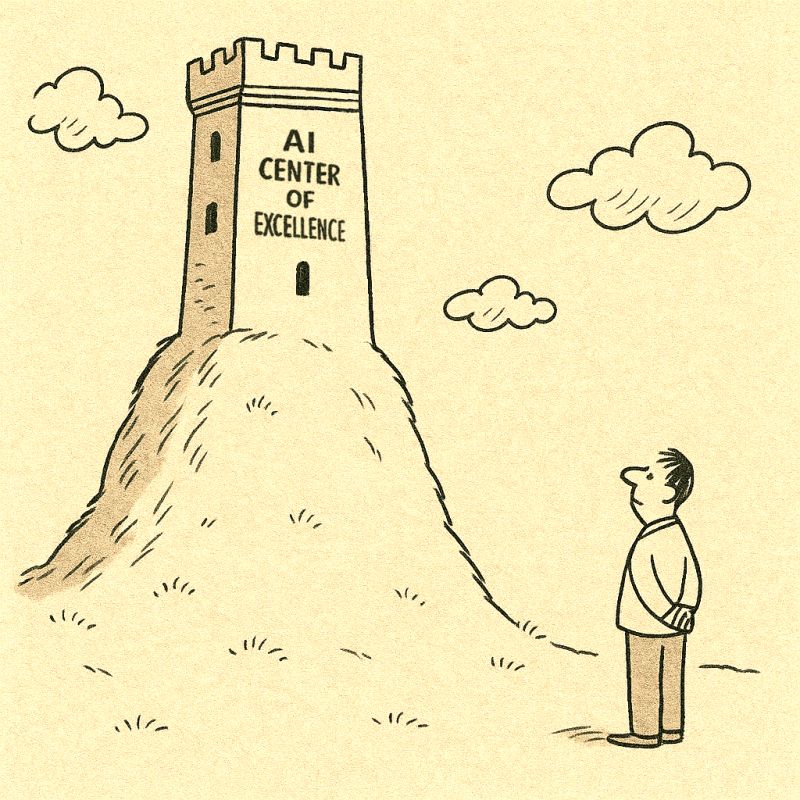Excellence in AI is a good start. But what really unlocks impact is engagement.
In many organizations, when something is important—data, design, AI, security—the first order of business is often to build a Center of Excellence (CoE) around it. We bring in specialists, protect the craft, and create structure to scale. That model has real value: it builds depth, ensures consistency, and signals commitment.
But excellence, on its own, isn't always enough.
When it comes to embedding a new capability across the business, what starts as focus can drift into distance. The center becomes a hub of thought leadership—but disconnected from the day-to-day needs of teams trying to move fast and make decisions. Expertise is there, but it's not embedded. It's consulted, not lived.
Making AI work isn't about abandoning Centers of Excellence. It's to evolve them into Centers of Engagement.
That shift doesn't lower standards—it raises relevance. It means bringing experts closer to where problems are being solved. It means co-creating solutions, not just reviewing them. It means being in the room early, not just validating things later. And most importantly, it means building trust and shared ownership—not just oversight.
This approach needs calibration. Some functions—security, compliance, governance—may still need stronger central oversight. But the principle holds: find ways to engage, not just excel.
This is especially true in fast-moving, cross-functional areas like AI, but it applies across disciplines. When excellence stays in the center, its impact is limited. When it engages—when it listens, adapts, and partners—it scales.
CoEs don't need to be redefined. They need to be activated.
The real value of expertise is not in how well it performs in isolation—but in how deeply it connects to the work, the people, and the outcomes that matter.
